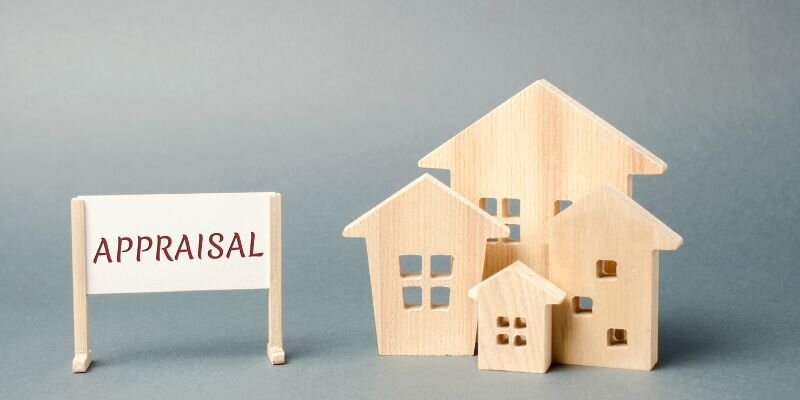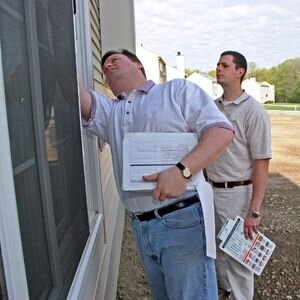
Essential Guide to Home Buying Expenses in Philadelphia, PA
Find out who pays for home inspections and appraisals in the Philadelphia real estate market. Usually, the buyer pays for these important processes.
Home appraisals are necessary to determine the property’s market value and are usually required by lenders before purchasing a mortgage. If you’re looking for cash home buyers in Philadelphia, understanding these appraisal costs will help you prepare financially. This fee ensures that the loan amount aligns with the home’s worth.
Home inspections, on the other hand, give buyers a full picture of a property’s state and point out any problems that might affect costs or safety. These prices may seem high at first, but they are necessary for doing your research before buying a house in Philadelphia.
Buyers should budget for these expenses as part of their closing costs to ensure they make an informed investment. Understanding these financial responsibilities can help streamline the buying process and protect against unforeseen challenges in Philadelphia’s competitive housing market.
Navigating Home Purchase Costs: Philadelphia’s and Inspections Explained
When figuring out how much a house costs in Philadelphia, it’s important to know who is responsible for home checks, especially in cases of a Failed Inspection. Most of the time, the buyer pays for the inspection and evaluation services.
Most lenders require appraisals to determine the property’s fair market value to ensure that the loan amount aligns with its worth. This cost generally falls on the buyer as part of securing their mortgage financing.
Buyers who want to know how the house is in before they buy it should also get an inspection. The results of an inspection may show problems that could lower the property’s value or necessitate expensive repairs.
Although sellers may sometimes offer to cover these expenses as an incentive or negotiation strategy in competitive markets, it remains standard practice for buyers to shoulder these costs to protect their investment and make informed decisions during the home-buying process in Philadelphia’s vibrant real estate landscape. To better understand how our process works, consult with local professionals who can guide you through each step efficiently.
Understanding Real Estate Appraisals in Philadelphia, PA
Homebuyers in the Philadelphia area would do well to note who is responsible for covering the costs of house inspections and appraisals. The buyer usually foots the bill for the assessment when they apply for a mortgage.
This assessment is very important because it tells lenders how much money they are willing to lend based on the property’s fair market value. On the other hand, buyers are usually responsible for getting a home inspected.
Buyers often arrange and pay for inspections to thoroughly assess the property’s condition before finalizing their purchase. However, it’s not uncommon for negotiations between buyers of property in Philadelphia to include discussions about who will pay these costs, especially in a competitive market where terms can be more flexible.
All parties involved can better manage expectations and negotiate Philadelphia’s dynamic real estate scene if they have a firm grasp of these dynamics.
Importance of Property Appraisals for Buyers and Sellers in Philly

In Philadelphia’s dynamic real estate market, property appraisals are available to buyers and sellers. An accurate appraisal provides an objective home valuation, ensuring that the price reflects the current market conditions in Philadelphia.
People who want to buy a house need to get a full appraisal to make sure they are making a good investment and that the selling price is fair. Lenders also use these appraisals to decide how much of a mortgage to accept. This keeps lenders from giving loans on homes whose prices are too high.
Sellers benefit from appraisals by setting competitive listing prices that attract potential buyers while maximizing profit. In Philly’s competitive housing landscape, where home values vary significantly across neighborhoods, an appraisal helps Philly’s pricing guesswork and facilitates smoother transactions between parties.
Successful real estate agreements in Philadelphia’s dynamic market are the result of honest and accurate property values that foster trust and open communication during negotiations.
How Appraisal Outcomes Affect Real Estate Transactions in Philadelphia
In Philadelphia’s market, the outcomes of home appraisals significantly influence the progression of property. Philadelphia’s appraisals determine a property’s fair market value, which is crucial for buyers and sellers in negotiating terms.
Quicker closings are the result of deals going smoothly when the appraised value is equal to or greater than the agreed upon purchase price. But if the evaluation turns out to be lower than anticipated, it may throw off talks and even kill offers.
In order to close the deal, buyers could have to raise their down payment or haggle with the seller. On the other hand, mortgage lenders use appraisals as a way to gauge risk before giving the green light; a low assessment could mean no loan approval or more requirements.
Stakeholders in real estate transactions in Philadelphia benefit from knowing the dynamics of appraisals so they may make educated decisions and prepare for potential problems. Additionally, if you’re navigating post-divorce property matters, read the Guide To Removing Your Name From A Mortgage After Divorce to protect your financial interests and ensure a smooth transition.
Legal Requirements for Real Estate Appraisals in Pennsylvania
In Pennsylvania, the legal requirements for real estate appraisals are designed to ensure accuracy and fairness in property transactions, which is crucial in Philadelphia’s dynamic real estate market. Appraisals must be conducted by a licensed appraiser who meets the Pennsylvania State Board of Certified Real Estate Appraisers’ standards.
The credibility and uniformity of these experts’ evaluations depend on their adherence to USPAP, the Uniform Standards for Professional Appraisal Practice. In order to arrive at an objective estimate of the property’s market value, the appraisal process carefully considers the property’s condition, location, and recent sales in Philadelphia.
By setting a reasonable price based on thorough research instead than guesswork, this essential step safeguards lenders and purchasers. It is crucial for all parties to have a clear understanding of these legal provisions because, in Philadelphia, buyers typically pay for house inspections, but appraisal fees can be adjusted during contract negotiations.
Cost Breakdown: Typical Fees for Home Appraisal Services in Philly
It is critical for buyers and sellers in the Philadelphia real estate market to know who is responsible for paying for house inspections and appraisals. Home appraisal fees in Philadelphia typically fall on the buyer, with estimates ranging from $300 to $500. This is because appraisals are commonly needed to verify that the property’s worth can sustain the loan amount.
This fee varies depending on property size, location, and the complexity of the property’s process. On the other hand, buyers generally pay for home inspections as part of their due diligence before purchasing a property.
These inspection fees range from $300 to $600 in Philadelphia and provide a comprehensive evaluation of a home’s condition. Sometimes, sellers may conduct a pre-listing inspection to address potential issues; however, the seller absorbs this cost.
Understanding these typical fees helps all parties navigate financial responsibilities more effectively within Philly’s dynamic real estate landscape. If you need to sell your house fast for cash in Ridley, similar cost considerations will apply during your transaction process.
Impact of Market Conditions on Property Valuation in Philadelphia
The real estate market in Philadelphia is quite sensitive to macroeconomic factors, which in turn affect home inspections and appraisals. Buyers that are in a rush to conclude deals may end up footing the bill for appraisals and inspections when sellers are in a strong position due to low inventory and high demand.
In contrast, sellers may cover these expenses during a buyer’s market characterized by abundant listings and lower demand to make their properties more attractive. Economic factors such as interest rates also play a crucial role in shaping property valuations; low rates can spur buying activity, driving up prices and affecting appraisal values.
Property values in Philadelphia neighborhoods that are undergoing revival or gentrification tend to be higher than in other locations. Both buyers and sellers would do well to keep abreast of these dynamics, as they influence bargaining power and, in the end, the allocation of funds for necessary inspections and evaluations.
The Role of Home Inspections in Philadelphia’s Housing Market
Home inspections in Philadelphia are essential since they reveal important information regarding the condition of a house. Experts in the field often perform these inspections, during which they check the structure, plumbing, electrical systems, and other vital areas of a house.
In Philadelphia, it is common for buyers to have homes for these inspections as part of their due diligence when considering a property purchase. The detailed inspection report helps potential buyers identify any existing or potential issues that could affect the home’s value or safety, enabling them to make informed decisions or negotiate repairs with sellers.
Additionally, home inspections in Philadelphia can uncover hidden problems that might not be apparent during initial viewings, such as roofing defects, foundation cracks, or pest infestations. Buyers gain peace of mind and protection against unforeseen expenses after closing the deal by investing in a comprehensive home inspection.
This method keeps the property market in Philadelphia open and trustworthy in the long run.
What Homebuyers Need to Know About Inspections in Philadelphia

In Philadelphia’s market, homebuyers must be well-acquainted with the nuances of home inspections, which are critical to both the buying process and future property investments. Typically, the responsibility for paying for home inspections falls on the buyer, as it is in their best interest to ensure the property’s condition meets expectations before finalizing any purchase agreements.
A thorough check looks at many parts of the property, like the structure, the roof, the plumbing, the electrical wiring, and the HVAC units. In Philadelphia, where ancient homes are common, buyers should also be aware of problems that may arise with older building materials and design standards.
Engaging a certified inspector familiar with local building codes and common regional issues can provide invaluable insights and potentially save buyers from costly repairs down the line. Understanding these aspects helps buyers make informed decisions in Philadelphia’s competitive housing market.
Common Issues Found During Home Inspections in Philadelphia Homes
Home inspections in the Philadelphia area reveal a lot of common problems that prospective purchasers should be aware of. Outdated electrical systems are one issue; they need expensive improvements to meet current requirements and can be dangerous.
Inspections frequently identify plumbing issues like leaky pipes or inadequate water pressure. Weather conditions may cause damage or deterioration to the older roofs of many Philadelphia homes, necessitating repairs or replacements.
Another important thing that inspectors look for is problems with the structure, like foundation cracks or uneven floors, which can have a big effect on the home’s value and security. Also, inspectors often find signs of pest infestations in houses, especially termites, which can cause a lot of damage if not fixed quickly.
Mold and moisture problems are common in Philadelphia homes due to the humid climate and can impact indoor air quality and health. These inspection findings are crucial in informing buyers about potential repair costs and negotiating terms with sellers in the Philadelphia real estate market.
Step-by-step Process of Conducting a Home Inspection in Pa
To guarantee a comprehensive assessment of the property’s condition, there are numerous essential tasks to follow during a home inspection in Philadelphia’s real estate market. The first step is to find a qualified home inspector who is familiar with the ins and outs of the local building codes.
After being recruited, the inspector sets up a time to see the property, usually working with the buyer from Pennsylvania and their real estate agent. The inspector looks at different parts of the house in a systematic way during the inspection, which usually lasts a few hours. They look at the foundation and roof, as well as important systems like plumbing, electricity, and HVAC.
They also assess interior features like walls, ceilings, floors, doors, and windows for any signs of damage or needed repairs. In addition to these areas, inspectors pay special attention to potential safety hazards such as faulty wiring or mold presence.
They create a thorough report detailing their findings and suggestions for any repairs or additional assessments that are required after the inspection is finished. This comprehensive report is crucial for buyers and sellers in Philadelphia’s competitive real estate market because it provides an informed basis for negotiations regarding repairs to the property’s sale price.
Protecting Your Investment: Why Every Buyer Needs a Thorough Inspection

In Philadelphia’s real estate market, ensuring a sound investment is critical for any homebuyer, beginning with a thorough inspection. A comprehensive inspection can reveal hidden issues that may not be visible during an initial walkthrough, such as structural problems, electrical faults, or plumbing deficiencies.
Buyers can negotiate the purchase price by identifying potential concerns early on and conducting a cost inspection as part of the due diligence process before finalizing a purchase agreement.
Investing in a detailed inspection protects buyers from unforeseen future expenses and ensures the safety and soundness of their new Philadelphia property. Moreover, understanding the full scope of potential repairs allows buyers to make informed decisions about their investment, ensuring long-term satisfaction and financial stability in the dynamic Philadelphia housing market.
Challenges of Older Homes: Special Considerations for Philly Inspections
In Philadelphia’s real estate market, managing the obstacles associated with older homes requires special considerations during home appraisals. Many historic properties in Philadelphia have unique architectural features and vintage materials that demand careful examination.
Home inspections for these older houses often reveal issues related to outdated electrical systems, aging plumbing, and deteriorating foundations, which can significantly impact appraisal values. Additionally, lead-based paint or asbestos in older Philadelphia homes necessitates thorough inspection protocols to ensure safety and compliance with current regulations.
Buyers or sellers typically bear the cost of these detailed home inspections as part of the transaction process. Both parties must understand how these complexities might affect not only the appraisal outcome and costs but also negotiations in Philadelphia’s competitive real estate market.
Such knowledge empowers buyers to make informed decisions while ensuring Philadelphia’s properties are prepared for sale.
Who Normally Pays for an Appraisal, Buyer or Seller?
In Philadelphia’s real estate market, the responsibility for paying for home appraisals and inspections typically falls on the buyer. When a buyer is purchasing a property, their lender will generally require an assessment to ensure that the home’s value aligns with the requested loan amount.
Thus, the buyer usually pays for this appraisal as part of their closing costs. Similarly, buyers often initiate home inspections to assess the condition of a property before finalizing their purchase.
These inspections offer crucial insights into potential issues or necessary repairs within a home, safeguarding the buyer’s investment. While sellers may sometimes offer to cover these costs as part of a negotiation strategy or during buyer’s market conditions to incentivize buyers, it remains customary in Philadelphia for purchasers to bear these expenses independently.
Understanding who pays for appraisals and inspections is crucial for both parties involved in Philadelphia’s dynamic real estate transactions. It ensures clarity and preparedness throughout the buying process. If you have questions about your specific situation, feel free to contact us for guidance.
Who’s Philadelphia’s Inspection and Appraisal Near Me?
In Philadelphia’s real estate market, understanding who pays for home inspections and appraisals is crucial for buyers. Philadelphia Sally, the buyer is responsible for covering the home inspection and assessment costs when purchasing a property.
Home inspections are vital, as they assess the condition of the property and identify necessary repairs or potential issues. The appraisal, conversely, determines the home’s market value to ensure that the buyer is paying a fair price.
However, in some cases, sellers may offer to pay for home services as an incentive to attract buyers in competitive markets. Both parties need to negotiate and clarify these costs upfront in their agreements.
Consulting with local real estate agents can provide insights into standard practices regarding who pays for home inspections and appraisals in Philadelphia’s dynamic real estate scene.
Helpful Philadelphia Blog Articles
- Tips For Selling Your Inherited House In Philadelphia, PA
- Who Pays For Home Appraisals And Inspections In Philadelphia, PA
- Removing Your Name From A Mortgage After Divorce In Philadelphia, PA
- Sale Of A Philadelphia, PA, Home With Unpermitted Work
- Understanding FSBO Costs For Home Sellers In Philadelphia, PA
- Divorce Home Appraisal In Philadelphia, PA
- Prevent House Foreclosure In Philadelphia, PA
- Inheriting A House With Siblings In Philadelphia, PA
- Homeowners Insurance When Selling Your House In Philadelphia, PA
- Rules For Leaving A House Vacant in Philadelphia, PA
- Philadelphia, PA, Property Managers
- Selling Your Inherited House In Philadelphia, PA
- Philadelphia, PA Neighborhood Map
- Philadelphia, PA Cost of Living
- Fun Facts About Philadelphia, PA

| EXPENDITURES | KEYSTONE STATE | FEDERAL HOUSING ADMINISTRATION | FHA | FEDERAL HOUSING Administration (FHA) | FHA LOANS |
| HOME MORTGAGE | MORTGAGE LOAN | CONVENTIONAL MORTGAGE LOANS | MORTGAGE LENDER | PHILADELPHIA PENNSYLVANIA | CREDIT |
| INFORMATION | REFINANCE | REFINANCING | REALTOR | BROKER | OPTION |
| TITLE COMPANY | HOMEOWNER | EQUITY | REAL ESTATE TAX | FLOOD | BANK |
| ATTORNEY | HOA | GOAL | ESCROW | CONSUMERS | CONDOMINIUMS |
| AVERAGE | AMERICA | OWNERSHIP | LOAN-TO-VALUE RATIO | HOMEOWNERS INSURANCE | HOMEOWNERS |
| HEATER | EXPERT | BORROWERS | DATA | CREDIT CARD | PHILADELPHIA, PENNSYLVANIA |
| CLOSING COSTS ARE | CLOSING COSTS IN | ARE CLOSING COSTS | BUYER’S CLOSING COSTS | THE BUYER’S CLOSING | HOW MUCH ARE CLOSING COSTS |
| CLOSING COSTS IN PENNSYLVANIA |
